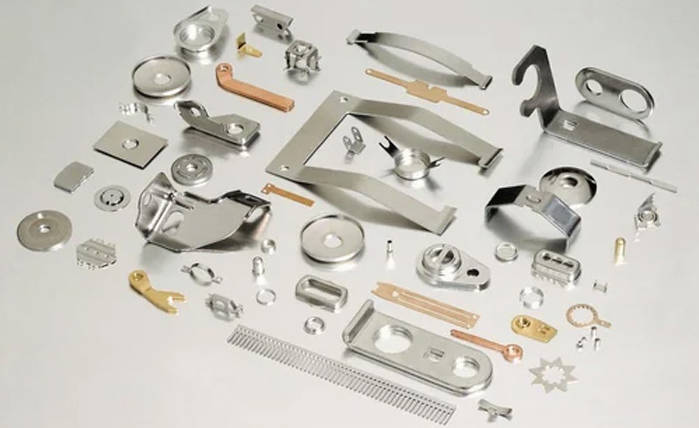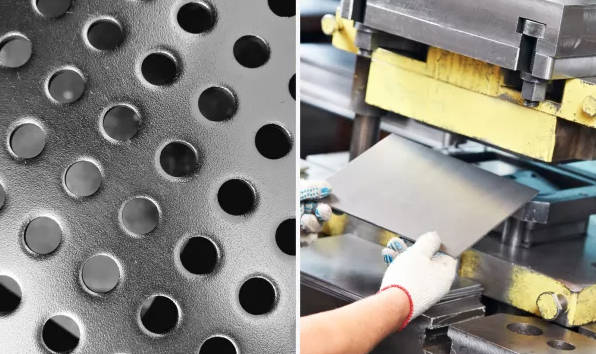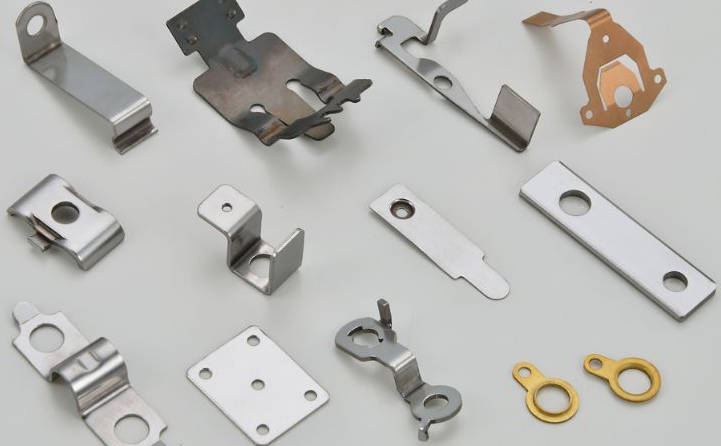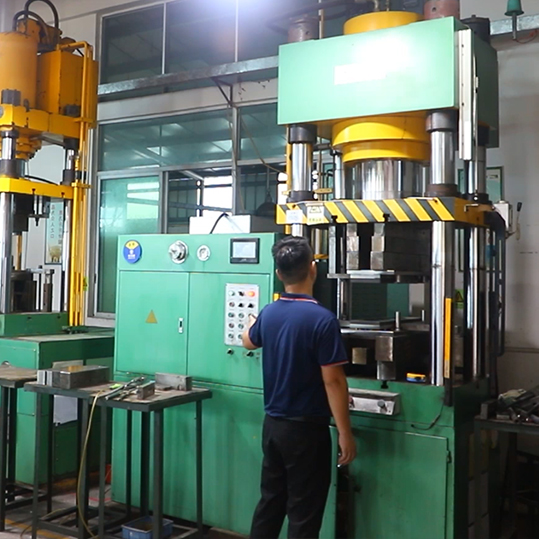An Engineer’s Guide to Material Selection for Precision Stamping
Introduction: The Critical Choice in Metal Forming and Stamping
Material selection accounts for 40% of total production costs in Custom Metal Stamping projects. With industries demanding lighter, stronger, and more corrosion-resistant Stamping Parts, the steel vs. aluminum debate has never been more relevant. This guide provides data-driven insights to optimize your Stamping Process for:
- Precision Stamping tolerances (±0.05mm)
- Tooling longevity (50k–1M+ cycles)
- Lifecycle cost reduction (15–30% savings)

Steel Alloys in Metal Stamping: Powerhouse Performance
Material Characteristics
Steel dominates Metal Forming and Stamping with these properties:
| Property | Low-Carbon Steel | HSLA Steel | Stainless (304) |
| Tensile Strength (MPa) | 300–550 | 600–800 | 505–750 |
| Elongation (%) | 35–45 | 15–25 | 40–60 |
| Cost ($/kg) | 0.80–1.20 | 1.50–2.00 | 3.00–4.50 |
Key Advantages for Stamping Process Optimization:
- High-Volume Consistency: Automotive hood panels achieve ±0.1mm tolerance across 500k+ cycles.
- Predictable Springback: Finite Element Analysis (FEA) models reduce trial runs by 60%.
- Post-Treatment Flexibility: Electrogalvanizing adds <5% cost while tripling corrosion resistance.
Aluminum Alloys: The Lightweight Challenger
Material Properties
Aluminum’s strength-to-weight ratio revolutionizes Precision Stamping for aerospace and EVs:
| Alloy | Yield Strength (MPa) | Density (g/cm³) | Formability (LDR) |
| 5052-H32 | 215 | 2.68 | 1.8 |
| 6061-T6 | 275 | 2.70 | 1.6 |
| 7075-T6 | 505 | 2.81 | 1.4 |
Stamping Process Innovations:
- Progressive Dies: Reduce aluminum’s earing defects by 70% in battery tray production.
- Warm Stamping (200–250°C) : Improves 6xxx-series formability by 40%.
- Scrap Recycling: 95% of aluminum scrap is reusable vs. 50% for steel.
Head-to-Head Technical Comparison
| Parameter | Steel | Aluminum |
| Cycle Time | 12 strokes/min | 8–10 strokes/min |
| Tooling Cost | $50k (base) | +30–50% |
| Corrosion Protection | Requires coating | Native oxide layer |
| Joining | Spot welding | Friction stir welding |
Case Study – Automotive Door Panel:
- Steel: $4.20/part, 2.1kg, 10-year corrosion warranty
- Aluminum: $6.80/part, 0.9kg, 15-year warranty
Break-even at 120k units due to fuel savings
Industry-Specific Applications of Stamping Parts
1. Automotive Metal Stamping
- Steel: 98% of BIW (Body-in-White) structures; UTS 1500MPa press-hardened steels for crash zones.
- Aluminum: Hoods/doors reduce weight by 40%; Tesla Cybertruck uses 3mm 300-series stainless.
2. Electronics Precision Stamping
- Steel EMI Shields: 0.2mm thickness with <1Ω/sq conductivity.
- Aluminum Heat Sinks: 229 W/m·K thermal conductivity in 5G基站.
3. Aerospace Custom Metal Stamping
- Aluminum 7075: Wing ribs with 505MPa strength at 2.81g/cm³.
- Steel 17-4PH: Landing gear components withstand 1,200MPa loads.
Stamping Process Optimization: Expert Methodology
1. Functional Requirements Checklist
- Load Conditions: Use FEA simulations for stamping parts under 800MPa dynamic loads.
- Environmental Factors: Salt spray testing per ASTM B117 (500–1,000 hours).
2. Production Economics Calculator
| Volume | Steel Cost/Part | Aluminum Cost/Part |
| 10k | $4.20 | $7.50 |
| 100k | $3.80 | $6.20 |
| 1M | $3.10 | $4.90 |
Note: Includes tooling amortization and scrap recovery.
3. Sustainability Metrics
| Material | CO2/kg (Production) | Recycled Content |
| Steel | 1.8 | 30–50% |
| Aluminum | 8.5 | 75–90% |
Emerging Trends in Metal Forming and Stamping (2024)
- Third-Gen AHSS: 1.5GPa strength with 25% elongation for EV structural parts.
- AI-Driven Stamping: Machine learning reduces die tryout time by 80% (BMW case study).
- Hybrid Solutions: Aluminum-clad steel sheets (100μm layer) for corrosion-resistant battery trays.
Conclusion: Winning Through Hybrid Material Strategies
For Custom Metal Stamping success in 2024:
- Choose steel for high-volume Precision Stamping with tight budgets (<$5/part).
- Opt for aluminum when weight savings offset 2–3x part costs (e.g., EVs, aerospace).
- Implement Stamping Process Optimization via:
- Predictive maintenance (IoT sensors)
- Closed-loop recycling systems
Final Recommendation: Pilot new materials with <5k-unit batches before scaling. Partner with stamping vendors holding IATF 16949 certification for automotive-grade consistency.






